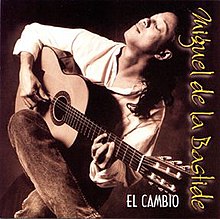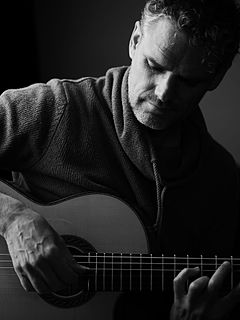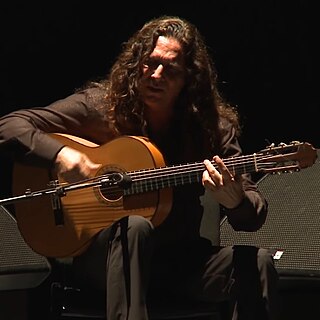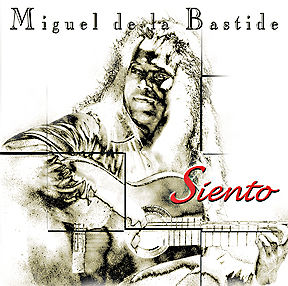| El Cambio | ||||
|---|---|---|---|---|
 | ||||
| Studio album by Miguel de la Bastide | ||||
| Released | 1998 | |||
| Genre | Flamenco | |||
| Length | 48:23 | |||
| Label | La Bastide Productions | |||
| Miguel de la Bastide chronology | ||||
| ||||
El Cambio is the debut studio album by Miguel de la Bastide. It was recorded at La Bastide Productions and mastered by George Graves at Lacquer Channel [1] in Toronto Canada in 1998. The track "Calle Torrecillo del Leal" was mixed by Jesse Cook at his recording studio, which was stated in the liner notes and also in an article in "20th Century Guitar Magazine". [2]

Miguel de la Bastide is a Trinidad-born Flamenco composer and virtuoso guitarist who first appeared on the scene in 1996 on the CD compilation Flamenco: Fire and Grace under the record label Narada Productions that placed him alongside some of Spain's most prominent guitarists, including Paco de Lucía, Tomatito and Rafael Riqueni to name a few. Since then, he has appeared on numerous other Flamenco and Nuevo Flamenco compilations. He is the only guitarist from Trinidad and Tobago that has had success recording in the flamenco genre and is also a recipient of the Chalmers Award and Toronto Arts Council Award.

Jesse Arnaud Cook is a Canadian guitarist, composer, and producer. Widely considered one of the most influential figures in nuevo flamenco music, he incorporates elements of flamenco rumba, jazz and many forms of world music into his work. He is a Juno Award winner, Acoustic Guitar Player's Choice Award silver winner in the Flamenco Category, and a three-time winner of the Canadian Smooth Jazz award for Guitarist of the Year. He has recorded on the EMI, E1 Music and Narada labels and has sold over 1.5 million records worldwide.
Contents
The album contains four re-recorded tracks that were previously released under the Narada Productions label onto various Flamenco and Nuevo Flamenco compilations. "Morir Soñando" was previously recorded in 1996 as "Morí Soñando" and was one of his first contributions to the compilation Flamenco: Fire and Grace . [3] The other was "Viajeros", which was originally titled "Viajero". "Calle Torrecillo del Leal" was originally titled "Torrecillo del Leal" on the compilation Gypsy Passion in 1997. [4] "A Mi Carmen" was originally titled "Mi Carmen" on the compilation Gypsy Soul in 1998. [5]

Narada is a record label formed in 1983 as an independent New-age music label and distributed by MCA. A fully owned subsidiary of Universal Music Group and distributed by Capitol Music Group's Blue Note Records, the label evolved through an expansion of formats to include world music, jazz, Celtic music, new flamenco, acoustic guitar, and piano genre releases.

Flamenco, in its strictest sense, is a professionalized art-form based on the various folkloric music traditions of southern Spain in the autonomous communities of Andalusia, Extremadura and Murcia. In a wider sense, it refers to these musical traditions and more modern musical styles which have themselves been deeply influenced by and become blurred with the development of flamenco over the past two centuries. It includes cante (singing), toque, baile (dance), jaleo, palmas (handclapping) and pitos.

Flamenco: Fire and Grace is the first flamenco collection from Narada Productions featuring some of flamenco's most prominent performers showcasing both instrumental and vocal. Its liner notes contains a romantic description of flamenco by Brook Zen and brief biographies of each performer as they appear in sequence.
Two tracks from the album were later included in Narada compilations: "Candela" was his contribution to Gypsy Fire in early 2000 [6] and a shortened version of the title track, renamed "El Cambio (edit)" on Viva Flamenco! in the later part of 2000, which was the highly anticipated sequel to "Flamenco: Fire and Grace". [7]

Viva Flamenco! is the second and highly anticipated sequel to "Flamenco: Fire and Grace" – flamenco collection from Narada Productions. Its liner notes contain brief biographies with pictures of each performer as they appear in sequence.









